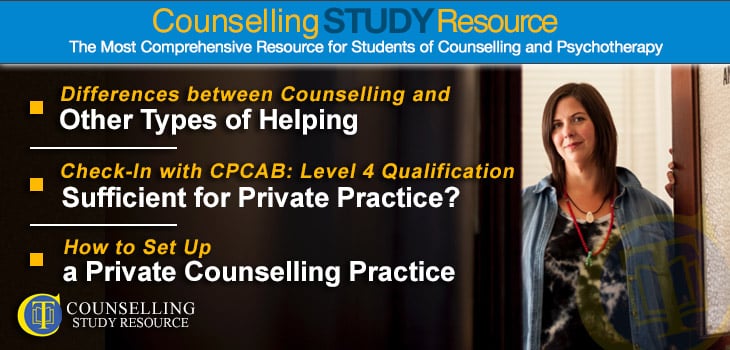Differences between Counselling and Other Helping Professions (starts at 3.15 mins)
Not everyone who comes on Level 2 and Level 3 counselling courses wants to be a qualified counsellor. (These levels relate to the National Qualifications Framework for England, Wales and Northern Ireland – the Scottish system is different.)
Indeed, counselling skills are useful in many different professions, for example social care, health care, probation services and chaplaincy.
How counselling differs from other types of helping is a regular topic on counselling courses, appearing often in exams and assignments, especially at Level 2.
It can be very challenging for people who are used to helping in very different ways to become accustomed to helping in a counselling way.
For example, many helping professions may have a ‘fixing’ role, focused on solving the person’s problems for them.
It is a huge change for those used to this mode of helping to understand that in counselling, the client has autonomy and responsibility for finding their own way of moving forward, with the therapist supporting them in this but specifically not offering advice.
It would be unethical for another helping professional who is not a qualified counsellor to start a counselling process with a client, as there would not be a counselling contract in place, with a planned course of sessions to complete this process.
All qualified counsellors work within the ethical framework of their professional body; this is vital to the provision of an ethical counselling service.
In short, counselling courses at Level 2 and Level 3 are ‘CV gold’ in terms of the sought-after communication and listening skills they teach you – but it’s vital to know your limits.
Rory has written a handout entitled ‘What Is Counselling?’. You can download this free of charge here; it is also available through the Handouts Vault and Counselling Study Resource (CSR).



